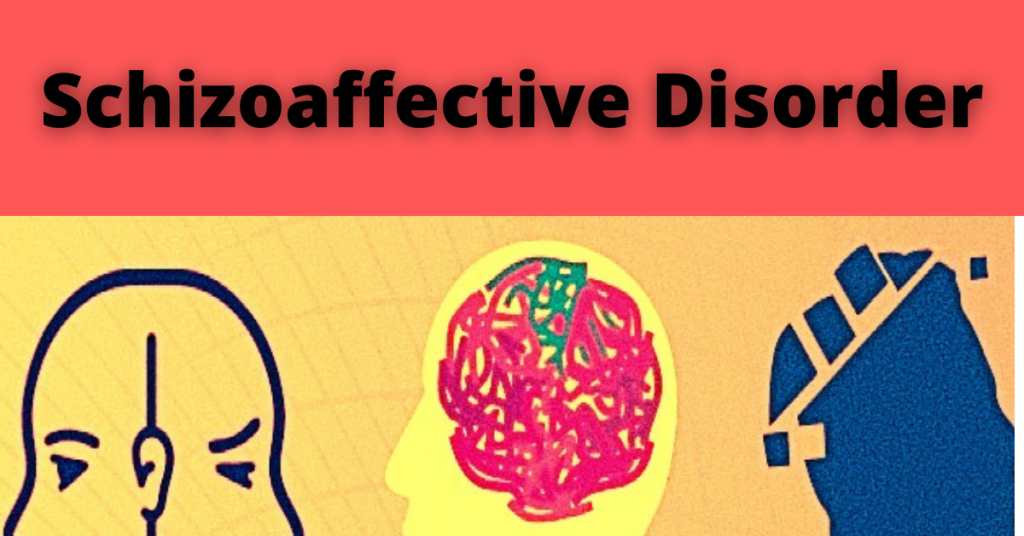Schizoaffective disorder is a mental illness that is characterized by symptoms of both schizophrenia and a mood disorder, such as bipolar disorder or depression. It is a relatively rare condition, affecting less than 1% of the population. If you or someone you know is struggling with schizoaffective disorder, this comprehensive guide will provide you with all the information you need to understand the condition and get the help you need.
Contents
What Is Schizoaffective Disorder?
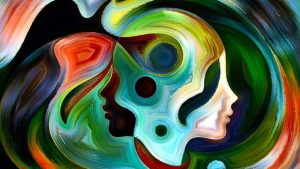 Schizoaffective disorder is a mental illness that is characterized by symptoms of both schizophrenia and bipolar disorder. This condition can be very disabling and may significantly interfere with an individual’s ability to function normally. Schizoaffective disorder is classified as a serious mental illness, and it is estimated that about one percent of the population suffers from this condition.
Schizoaffective disorder is a mental illness that is characterized by symptoms of both schizophrenia and bipolar disorder. This condition can be very disabling and may significantly interfere with an individual’s ability to function normally. Schizoaffective disorder is classified as a serious mental illness, and it is estimated that about one percent of the population suffers from this condition.
This disorder is one of the most serious mental illnesses that can be diagnosed, and it often requires a great deal of treatment in order to achieve remission. The course of schizoaffective disorder is highly variable, with some individuals experiencing only a single episode while others may have long-term or recurrent episodes.
Symptoms of Schizoaffective Disorder
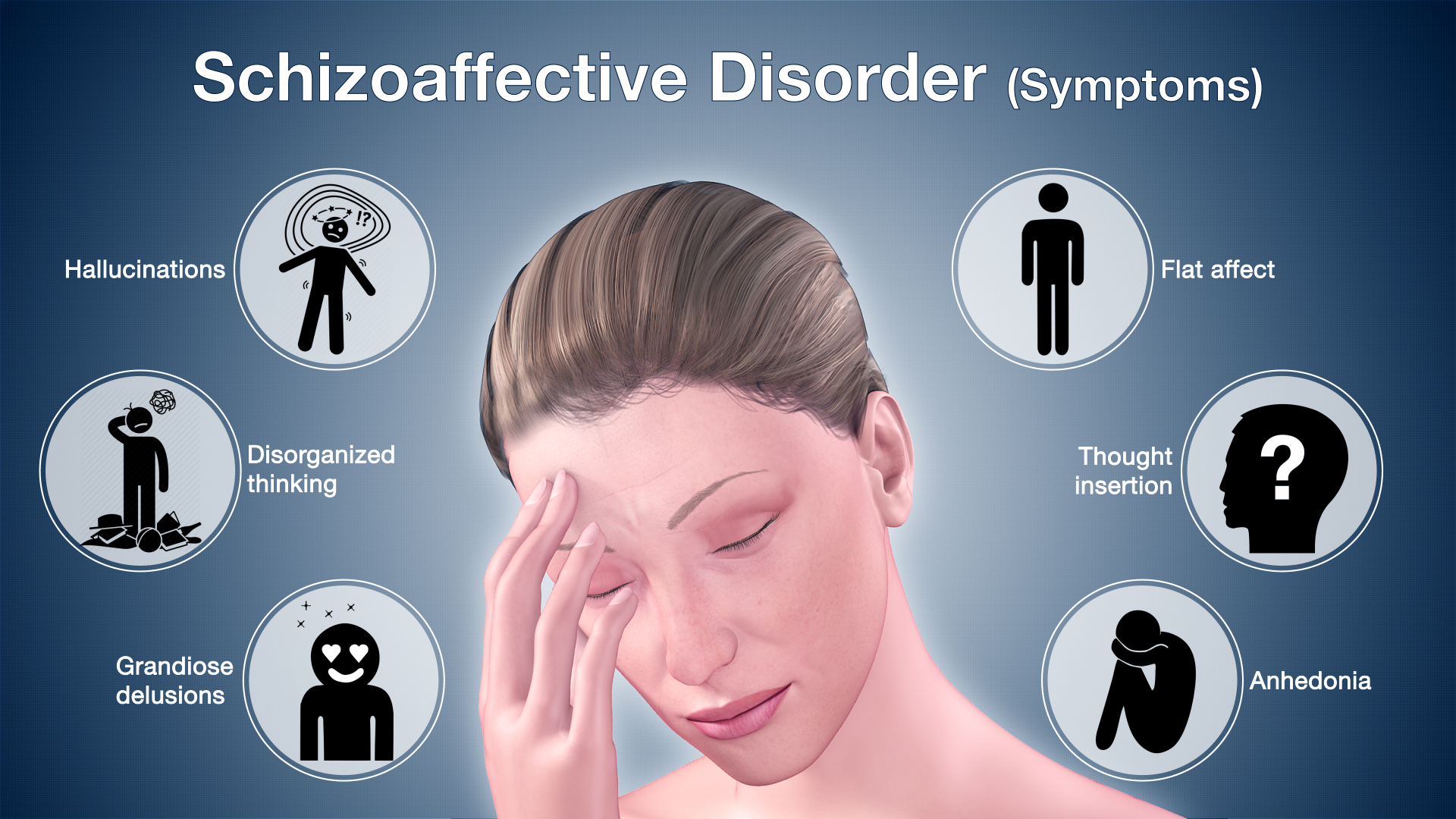
Symptoms of schizoaffective disorder can vary significantly from person to person. However, there are some common symptoms that are typically associated with this condition. These include:
Hallucinations
This is one of the most common symptoms of schizophrenia, and it refers to the experience of seeing, hearing or feeling things that are not actually there. Hallucinations can be auditory (such as hearing voices), visual (seeing things that are not there), olfactory (smelling things that are not there), gustatory (tasting things that are not there), or somatic (feeling things that are not there).
Delusions
 This is another hallmark symptom of schizophrenia, and it refers to false beliefs that are firmly held by the individual despite evidence to the contrary. Delusions can be persecutory in nature (believing that others are out to get them), grandiose in nature (believing that they have special powers or abilities), or erotomanic in nature (believing that someone is in love with them).
This is another hallmark symptom of schizophrenia, and it refers to false beliefs that are firmly held by the individual despite evidence to the contrary. Delusions can be persecutory in nature (believing that others are out to get them), grandiose in nature (believing that they have special powers or abilities), or erotomanic in nature (believing that someone is in love with them).
Depression
Depressive symptoms are common in individuals who have schizoaffective disorder. These symptoms can be severe and may significantly impair the individual’s ability to function normally.
Anxiety
Anxiety symptoms are also common in individuals with schizoaffective disorder, and these can be quite debilitating as well.
Manic Symptoms
Bipolar disorder is characterized by episodes of mania, which are periods of excessive energy, elevated mood, and decreased need for sleep. Individuals who have the schizoaffective disorder may experience manic symptoms during their episodes of schizophrenia. This can be very dangerous as it can lead to impulsive behavior and poor decision-making.
Racing Thoughts
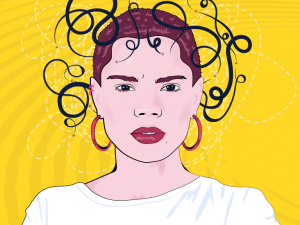 Sometimes individuals with schizoaffective disorder may experience racing thoughts, which is a symptom of schizophrenia. However, this refers to the experience of having thoughts that are constantly moving and difficult to focus on.
Sometimes individuals with schizoaffective disorder may experience racing thoughts, which is a symptom of schizophrenia. However, this refers to the experience of having thoughts that are constantly moving and difficult to focus on.
Irritability
This can be a common symptom of schizoaffective disorder, and it can refer to feeling easily angered or irritated by things that would not normally upset the individual. It can be very difficult to deal with someone who is irritable all the time.
Excessive Energy
This can also be a common symptom of mania, and it refers to feeling overly energetic and unable to sit still. This can be very disruptive and may make it difficult for the individual to focus on tasks or activities.
Poor Concentration
It can also be difficult for individuals with schizoaffective disorder to concentrate on tasks or activities. This may be due to the racing thoughts that they are experiencing, or it could be due to the excessive energy that they are feeling.
Social Withdrawal
 Individuals with schizoaffective disorder may withdraw from social situations as a way of coping with their symptoms. They may feel too embarrassed or ashamed to participate in social activities.
Individuals with schizoaffective disorder may withdraw from social situations as a way of coping with their symptoms. They may feel too embarrassed or ashamed to participate in social activities.
Suicidal Ideation
This is a very serious symptom, and it refers to thinking about suicide or wanting to end one’s life. If you are having these thoughts, please seek help immediately.
Causes of Schizoaffective Disorder

There are many causes of schizoaffective disorder, and the cause is often unknown. Some of the possible causes include:
Genetics
There is some evidence to suggest that genetics may play a role in the development of the schizoaffective disorder. If someone has a family history of schizophrenia or bipolar disorder, they are more likely to develop the schizoaffective disorder themselves.
Environmental Factors
It is also thought that environmental factors may contribute to the development of the schizoaffective disorder. Exposure to stress, violence, or drug abuse may increase the risk of developing this condition.
Brain Abnormalities
There is some evidence that suggests that there may be abnormalities in the brain structure or function of individuals who have schizoaffective disorder. This could explain why these individuals experience the symptoms that they do.
Stressful Life Events
This is another possible cause of the schizoaffective disorder. It is thought that stressful life events may trigger the development of this condition in some individuals. Sometimes these events can be very traumatic and may cause a lot of emotional distress.
Family Relationships
Sometimes the schizoaffective disorder may be caused or exacerbated by problems in family relationships. If there is a lot of tension and conflict within the family, it can cause stress and emotional upset which may lead to the development of this condition.
Diagnosis of Schizoaffective Disorder
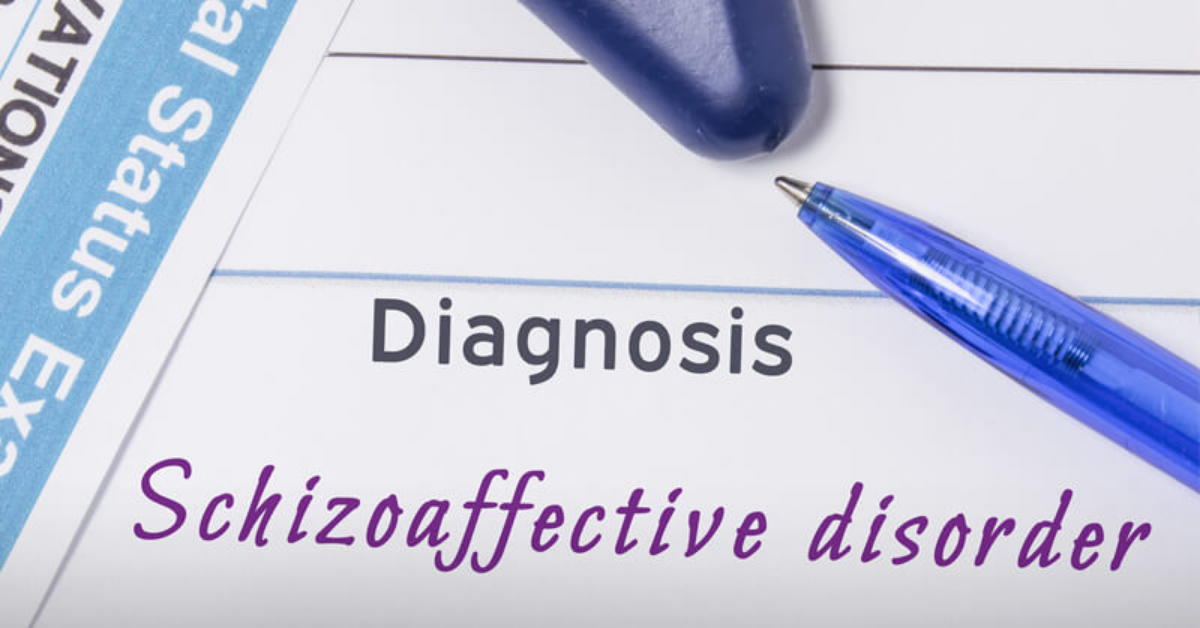
The diagnosis of schizoaffective disorder can be difficult to make, as it is a combination of two disorders (schizophrenia and bipolar disorder). It is often not clear which condition is dominant. To make the diagnosis, the doctor will review the individual’s symptoms and history.
There are some tests as well to diagnose the schizoaffective disorder, such as the SCID-I or the Structured Clinical Interview for DSM-IV. This is a questionnaire that is used to help diagnose mental disorders. These tests can help to determine if the symptoms are due to schizophrenia, bipolar disorder, or a combination of both.
Treatment of Schizoaffective Disorder

There is no one treatment that is best for everyone who has schizoaffective disorder. The treatment plan will be tailored to the individual’s needs and preferences.
Some of the common treatments for schizoaffective disorder include:
Medication
The most common form of treatment for schizoaffective disorder is medication. There are a variety of medications that can be prescribed, depending on the individual’s symptoms. These medications also help to stabilize the mood swings that are often seen in individuals with schizoaffective disorder.
Psychotherapy
psychotherapy is another common treatment for schizoaffective disorder. This type of therapy involves talking with a therapist about your thoughts and feelings. It can be helpful to talk about the challenges that you are facing and how to best manage them.
Hospitalization
In some cases, hospitalization may be necessary if the individual is experiencing severe symptoms or if they are a danger to themselves or others. Furthermore, hospitalization allows the individual to receive intensive treatment and support.
Counseling
This can be a helpful treatment for individuals who are struggling with schizoaffective disorder. Counseling can help to address any emotional issues that may be causing or exacerbating the condition.
Education
It is important for individuals with this disorder to learn as much as they can about the condition. This will allow them to better understand their own symptoms and how to best manage them. There are many resources available, such as books, websites, and support groups.
Preventing Schizoaffective Disorder

There are many methods to help prevent the development of this disorder. Some of these methods include:
Stay Active
This can be helpful in preventing the development of mental health conditions. Exercise releases endorphins, which have mood-boosting effects.
Maintain Healthy Diet
A healthy diet is important for overall good health. It is especially important for people who are at risk for developing this disorder. A balanced diet provides all of the nutrients that the body needs to function properly.
Get Enough Sleep
Getting enough sleep is essential for overall good health. People who are not getting enough sleep are more likely to develop mental health conditions such as schizoaffective disorder.
Limit Stressful Life Events
Reducing stressful life events can be helpful in preventing the development of mental health problems such as schizoaffective disorder. If possible, try to avoid situations that are stressful and cause anxiety or stress.
Seek Help Early
If you are noticing the early signs of this disorder, it is important to seek help from a mental health professional. Treatment is most effective when started early. You can also prevent the condition from becoming worse.
Try To Live Balanced Life
It is important to live a balanced life. This means having a healthy mix of work, leisure time, and relaxation time. It is also important to have positive relationships with friends and family members. Furthermore, having a balanced life can help to reduce the risk of developing the schizoaffective disorder. Sometimes, it is helpful to seek out professional help to achieve this balance.
Make Time For Self-Care
It is important to make time for self-care. This means taking care of yourself both physically and mentally. Some self-care activities include:
- Exercising
- Relaxing
- Spending time with friends and family members
- Enjoying your hobbies or interests
- Getting enough sleep
Try Not To Bottle Up Emotions
It is important to express your emotions, both positive and negative. Bottling up emotions can lead to mental health problems such as this disorder. If you are feeling overwhelmed or stressed, talk to a friend or family member about it. You can also seek professional help if needed.
Try To Stay Positive
It is important to stay positive, even when things are tough. Negative thoughts and emotions can aggravate the symptoms of schizoaffective disorder. When you are feeling down, try to find something to be happy about. You can also practice positive thinking exercises such as counting your blessings or writing down three good things that happened each day.
Make Time For Fun
It is important to make time for fun in your life. This can help to reduce stress and improve mood. Some fun activities include:
- Watching movies
- Hanging out with friends
- Going on walks
- Reading books
- Listening to music
- Participating in hobbies or interests
Conclusion
In conclusion, schizoaffective disorder is a serious mental health condition that can be difficult to manage. However, with the right treatment and support, it is possible to live a full and productive life. There are many methods available for managing the schizoaffective disorder, including counseling, medication, and self-care. It is important to seek help if you are struggling with this condition. With the right treatment and support, you can improve your quality of life significantly.
A Word From Therapy Mantra
Your mental health — your psychological, emotional, and social well-being — has an impact on every aspect of your life. Positive mental health essentially allows you to effectively deal with life’s everyday challenges.
Also, at Therapy Care, we have a team of therapists who provide affordable online therapy to assist you with issues such as depression, anxiety, stress, relationship, OCD, LGBTQ, and PTSD. You can take our mental health test. You can also book a free therapy or download our free Android or iOS app.
